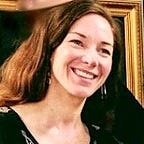uncodebar 4
Sharing knowledge and celebrating community
Globally, codebar runs over 150 programming workshops a year and this is only possible through the dedication of our coaches, organisers, and students. Our annual unconference, uncodebar, is an all day open space event where we have the opportunity to come together to learn from each other through workshops and discussions and to celebrate our community.
In the five years since codebar was founded, our community has grown rapidly and it was wonderful to see individuals from other UK chapters come to London for uncodebar. As such, this year felt like an impromptu reunion as well as a fantastic day of knowledge sharing. We were fortunate to have our large crowd of attendees well supported by our sponsors, QuantumBlack, One Ruby Thing, and Samsung Internet. Thanks to these sponsors not only did we raise funds for codebar, in addition, for the first time ever, we were able help 6 people from outside London attend uncodebar. We would also like to thank TwitterUK, who for the second year running were wonderful hosts!
Unconferences are a format that suit the codebar community very well since our workshops are marked by a spirit of generosity, openness, and sharing and are created at each instance through the interests, skills, and curiosity of both coaches and students.
What is an unconference?
As an open space event, the schedule of an unconference is created from the sessions participants propose to run. Session pitching is done in the morning, after breakfast and coffee, and a schedule of the unconference is created. Happily, our awesome community proposed many great sessions, including on topics as diverse as: data science, coding diaries, ethics, running tech communities, assembly, git, baking bread, kotlin, python, SRE, Arduino, designing for users, microbit, coaching, APIs, startups, and more!
Unconferences are meant to facilitate the sharing of insights and expertise. They are a great way for beginners to learn from those who have more experience and for all participants to solidify their knowledge through discussions and feedback. Sessions don’t need to be limited to purely technical topics, participants share their favorite hobbies, tips on avoiding burnout, and life hacks.
Unconferences arose from the realisation that conversations had during the ‘hallway track’ are often the most memorable part of a conference, with the most lasting personal impact. I had a wonderful time catching up with Founders and Coders alumni and continuing an ongoing discussion with Giuseppe Capizzi on design patterns.
One hallway conversation that has had a reverberating impact was with Benita Rajania (who works on the fellowship programme at Makers) after her moving talk on the importance of language and stories in creating safe, inclusive spaces.¹ We spoke about how the language you use in response to either experiencing or witnessing a microaggression has a strong influence on the subsequent impact of that event. Most of us have experienced microaggressions where we either didn’t respond as well as we would have liked, or saw someone handle the situation brilliantly and were inspired. In order to facilitate practice dealing with microaggressions, we discussed, with Charlotte Zhao, how beneficial it would be to run supportive, fun improv sessions where participants practice responding to microaggressions.² In subsequent discussions over the last few weeks, Benita has proposed hosting such an improv session in partnership with codebar at Maker’s Academy!
Although unconferences are free-form events, they do have “four principles and one law”, all of which are aimed at enabling participants to shape their unconference experience. The four principles of an Open Space are:
- Whoever comes are the right people.
- When it starts, it’s the right time.
- Whatever happens is the only thing that could have.
- When it is over, it is over.
The one law of an Open Space is the Law Of Two Feet:
If at any time you find that you are not benefiting from the discussion, neither learning nor contributing, use your two feet and move to some place more to your liking.
Participants are encouraged to leave or enter sessions mid-discussion, grab a cup of coffee if they need a break, or engage in their own hallway track. The key is that participants should not feel stuck in any session.
uncodebar4
This is the fourth time we’ve run uncodebar, codebar’s annual unconference, and each year it has grown larger. I’m always amazed at how generous and enthusiastic the codebar community is when sharing knowledge and supporting each other.
The talks, workshops, and lightning talks we had were fantastic. I’m already looking forward to next year’s uncodebar. Given the caliber of coaches we have at codebar, I’ll be proposing a round table discussion on coaching, tips and lessons learned, at uncodebar5!
[1] Benita Rajania has done a wonderful, highly recommended write-up of the talk she gave at uncodebar 4. You may read it here.
[2] We are considering naming the fun, supportive improv sessions, where we discuss microaggressions and practice responding to them, a Feminist Fight Club. However, I do worry about scaring people off from attending the sessions, which will be entirely and absolutely nonviolent. What do you think? Feel free to post your opinions in the comment section and, if you are interested in attending, what you would like to get out of the sessions!
Also, please post what uncodebar sessions you enjoyed the most and what you learned at uncodebar4!
